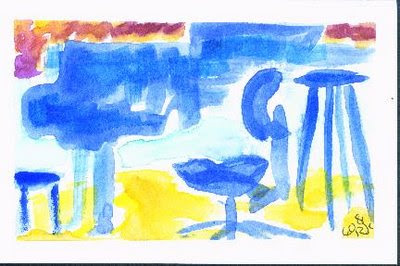
BY TED KOOSER, U.S. POET LAUREATE, 2004-2006
I really like this poem by Dick Allen, partially for the way he so easily draws us in, with his easygoing, conversational style, but also for noticing what he has noticed, the overlooked accompanist there on the stage, in the shadow of the singer.
The Accompanist
I've always worried about you--the man or woman
at the piano bench,
night after night receiving only such applause
as the singer allows: a warm hand please,
for my accompanist. At concerts,
as I watch your fingers on the keys,
and how swiftly, how excellently
you turn sheet music pages,
track the singer's notes, cover the singer's flaws,
I worry about whole lifetimes,
most lifetimes
lived in the shadows of reflected fame;
but then the singer's voice dies
and there are just your last piano notes,
not resentful at all,
carrying us to the end, into those heartfelt cheers
that spring up in little patches from a thrilled audience
like sudden wildflowers bobbing in a rain
of steady clapping. And I'm on my feet, also,
clapping and cheering for the singer, yes,
but, I think, partially likewise for you
half-turned toward us, balanced on your black bench,
modest, utterly well-rehearsed,
still playing the part you've made yours.
American Life in Poetry is made possible by The Poetry Foundation (www.poetryfoundation.org), publisher of Poetry magazine. It is also supported by the Department of English at the University of Nebraska-Lincoln. Poem copyright (c) 2007 by Dick Allen, whose most recent book of poetry is "Present Vanishing," Sarabande Books, 2008. Poem reprinted from "North Dakota Quarterly," Vol. 74, no. 3, Summer 2007, by permission of Dick Allen. Introduction copyright (c) 2008 by The Poetry Foundation. The introduction's author, Ted Kooser, served as United States Poet Laureate Consultant in Poetry to the Library of Congress from 2004-2006. We do not accept unsolicited manuscripts.
******************************









